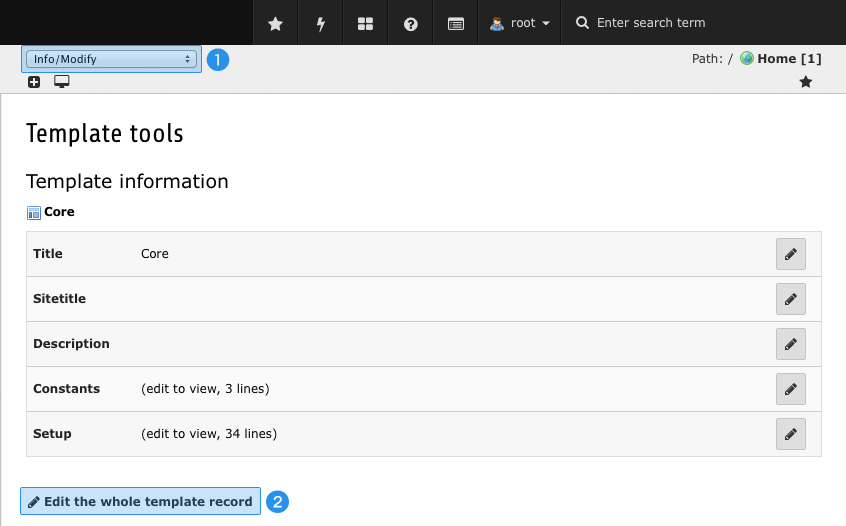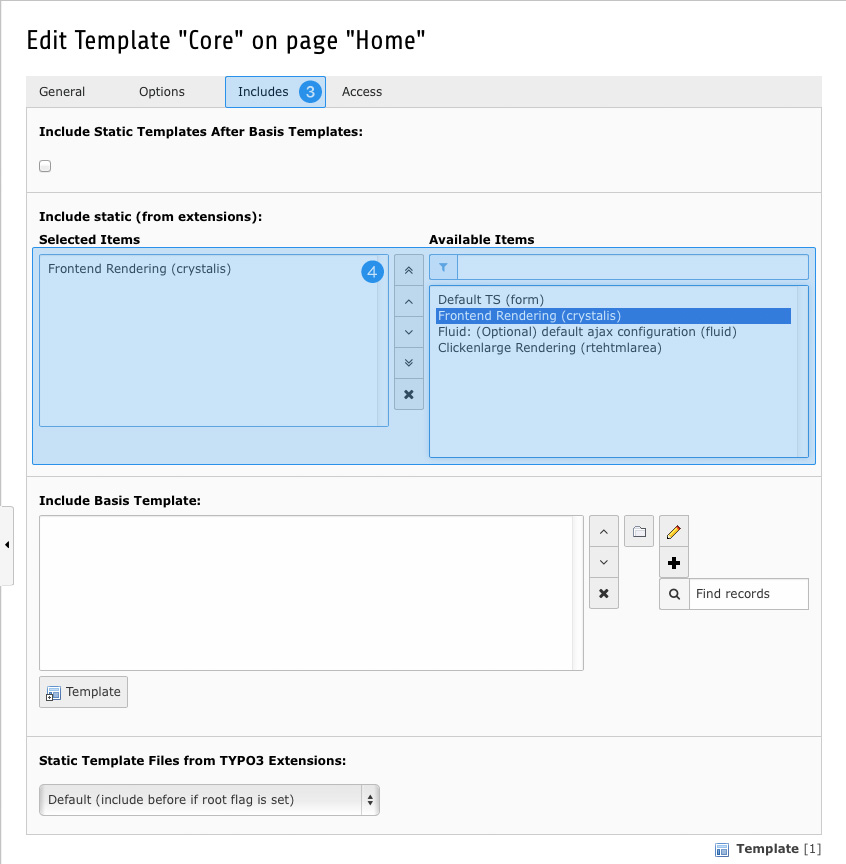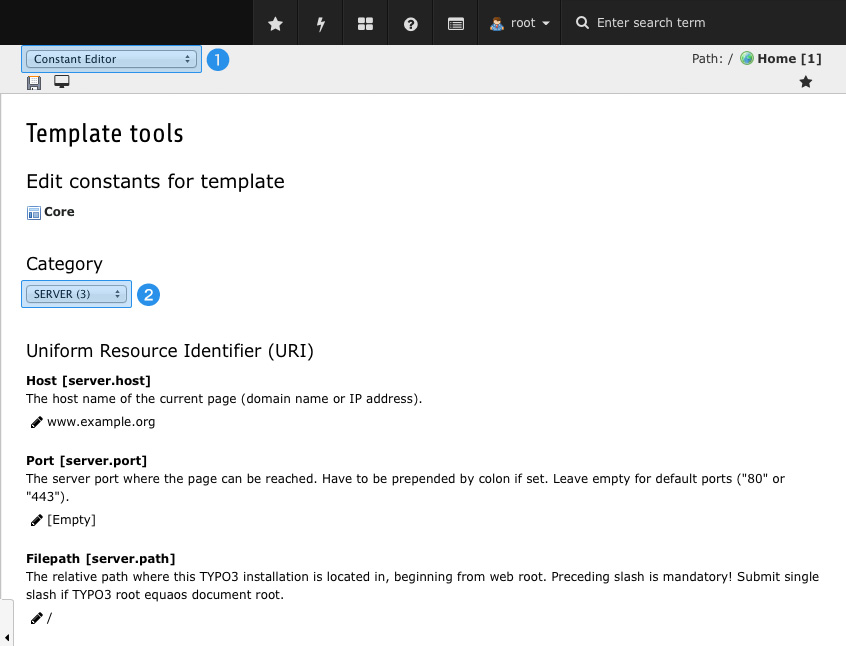DEPRECATION WARNING
This documentation is not using the current rendering mechanism and is probably outdated. The extension maintainer should switch to the new system. Details on how to use the rendering mechanism can be found here.
Content rendering¶
Crystalis provides its own content rendering logic and is intended to replace system extension CSS Styled Content ("css_styled_content"). To not mess up with third party extension and stay as compatible as possible, the main structure of CSS Styled Content was adopted, thus implementing plugins works the same way.
Unlike most of the other features, content rendering is not loaded by default. You have to allocate this setup to your website template individually.
Embedding content rendering¶
To make use of Crystalis' content rendering, you have to assign the render setup to the website templates of your choice.
To achieve this, head to the Template main module at first. Inside the page tree, select the page where you want the setup to feel responsible for rendering your content. In most cases this will be the home page of your website. If the chosen page does not contain any kind of template already, you may want to create a "Template for a new site" or an "Extension Template".

Next ensure function "Info/Modify" (1) is selected and follow "Edit the whole template record" (2) at the bottom.

Switch to "Includes" tab (3) and add item "Frontend Rendering (crystalis)" to "Selected Items" within "Include Static (from extensions)" (4) section. After saving your changes, the render setup will take up employment.
As soon as this had happened, Crystalis needs to know about the head domain of the respective page. Please see Basic domain settings.
Synergy with CSS Styled Content¶
As mentioned before, the whole content rendering logic is intended to completely replace CSS Styled Content. If you do not make use of this system extension any more (as recommended) you can safely uninstall it to not waste valuable resources.
Anyways, if you still are contingent to this system extension, Crystalis runs fine beside CSS Styled Content. But keep in mind that both content rendering setups are clearing previous ones at the beginning – meaning you can't effectively run both content rendering setups simultaneously.
To deactivate CSS Styled Content simply head to Extension Manager module, search for CSS Styled Content and click the minus-button next to it. Please do not physically remove this extension as this may lead to issues when trying to update the TYPO3 core later on.
Set up HTML doctype¶
In some cases Crystalis needs to react to the document type of your website. For example it does not make sense to allow the HTML5 Video element when XHTML 1.0 is used. As you may presume, the document type also affects content rendering – as HTML5 provides some great ways to improve semantics of your site.
If not specified, Crystalis expects the document type to be "HTML5". To switch to another type, head to Extension Manager module, select Crystalis and change "HTML Doctype" inside "Frontend Rendering" tab. As of now, Crystalis does support HTML5 and XHTML 1.0 Strict. This list may be expanded in future releases.
Basic domain settings¶
When a page is rendered, TYPO3 should know about the domain of the page. This gains in importance when the language service and/or RealURL is used. These settings are stored as constants inside your website template and therefore can easily been edited using the Constant Editor.
For this purpose switch to "Template" main module. Inside the page tree navigate to the page where the template is located in.

Next ensure function "Constant Editor" (1) is selected and choose category "SERVER" (2). Fill out the fields below as described there and save your changes.
Note: If working with multiple sites you have to specify a domain for each of them.